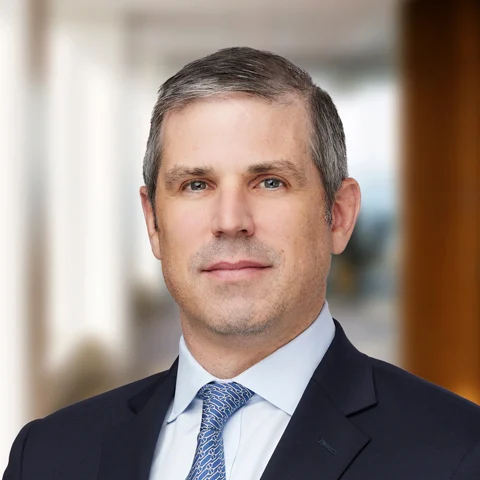
The Ripple Effect
Talking Investable Themes in Water with The Water Council
Baird is a highly respected voice in the Global Water sector, with deep relationships, relevant equity capital markets coverage and significant deal velocity. The Baird team has more than 25 years of investment banking and equity research water coverage and is a leading advisor in the sector across diverse end markets and applications.
Baird was a founding member in 2009 of The Water Council, the global hub dedicated to solving critical water challenges by driving freshwater innovation and advancing water stewardship and sustainability. Steve Guy, Managing Director and Head Baird's Global Water Investment Banking practice, as well as Steve Booth, Baird Chairman & CEO, sit on the organization’s board of directors.
The Water Council is an organization celebrating 15 years since its founding in Milwaukee, Wisconsin. Sitting alongside Lake Michigan, one of the five bodies comprising the world’s largest surface freshwater system, Milwaukee has earned a reputation as the freshwater technology capital of the U.S., which The Water Council enhances through its water technology and innovation programming. Increasingly, investors and other key stakeholders are demanding that corporations and other organizations identify and manage water-related risks as part of their external reporting. The Water Council is one of the world’s most experienced organizations in helping companies mitigate water risk through its WAVE program.
We recently connected with The Water Council’s President & CEO, Dean Amhaus, to get the organization’s current views on key developments and timely opportunities in the water space. Four key themes are creating ripples:
PFAS / Contaminants
As we shared in our recent Global Water Sector Update, contaminants including PFAS are the next opportunity in water treatment. In April 2024, the U.S. Environmental Protection Agency (EPA) announced drinking water standards for six individual PFAS “forever chemicals” including PFOA, PFOS, PFNA, PFHxS, HFPO-DA (GenX) and PFBS; this is the first time that drinking water standards have been finalized for a new chemical under the Safe Drinking Water Act since it was updated in 1996. Various solutions that filter, capture, concentrate and destroy are demonstrating great results in addressing these contaminants, resulting in further innovation and significant opportunity.
Water / Energy Nexus
The water/energy nexus is a huge opportunity space for resiliency. Water and energy are intertwined in many aspects, including water pumping, distribution, aeration, heating and cooling. Advanced water/energy solutions can optimize processes, provide cost savings, reduce chemical use, create redundancies for addressing stoppages or outages, contribute to ESG goals, provide off-grid energy and more. By adopting integrated approaches that consider the synergies and trade-offs between water and energy systems, industry, utilities and other stakeholders can better manage resources, enhance resilience and promote environmental sustainability.
Digital / AI
Digital and AI solutions are revolutionizing the water and energy sectors by offering innovative ways to efficiently manage resources. Through advanced sensors, data analytics and machine learning algorithms, these technologies enable real-time monitoring and optimization of water and energy systems. They empower utilities and industries to detect leaks, predict equipment failures and optimize energy usage, leading to cost savings and improved sustainability. By harnessing the power of digitalization and AI, stakeholders can enhance resource management, mitigate risks and pave the way for a more resilient and sustainable future.
Nutrients
Managing excess nutrients is critical for environmental sustainability, particularly in agricultural and urban settings where nutrient runoff can lead to water pollution. Strategies such as precision farming techniques, cover cropping and buffer zones are employed in agriculture to minimize nutrient loss and improve soil health. In urban areas, wastewater treatment technologies play a vital role in removing excess nutrients before discharge into water bodies. Additionally, fostering public awareness and implementing policies to regulate nutrient use and runoff are essential for addressing this complex issue and safeguarding ecosystems against the adverse effects of nutrient pollution.
Contact a member of Baird's Global Water team to discuss further. We welcome the opportunity to connect with you to share more about what to expect in the space going forward and provide introductions to leaders with The Water Council.








